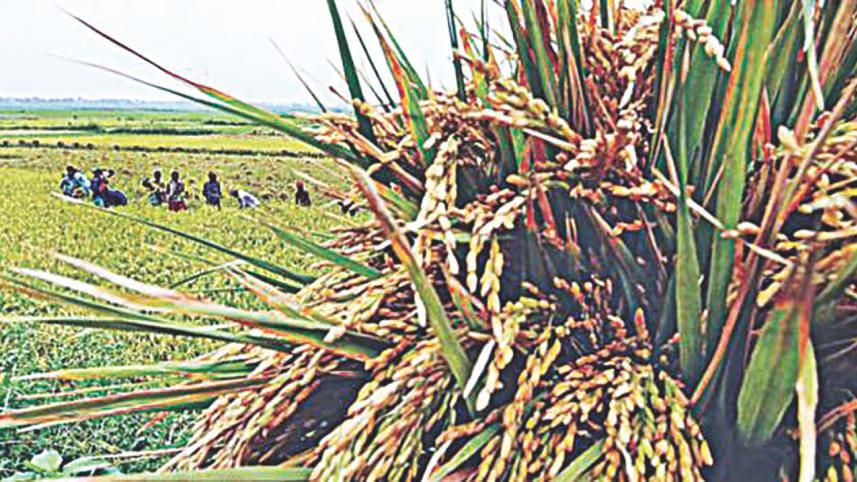Right to food security

A report published in The Daily Star (December 23, 2017) regarding food security situation in Bangladesh revealed that Bangladesh stood 89th in the Global Food Security Index-2017, as the last one among the South-Asian countries.The Global Food Security Index considers the core issues of affordability, availability, and quality across the 113 countries. The index is a dynamic quantitative and qualitative benchmarking model, constructed from 28 unique indicators, that measures these drivers of food security across both developing and developed countries.
Article 15 of the Constitution of the Peoples Republic Of Bangladesh state- “it shall be a fundamental responsibility of the state to attain, through planned economic growth, a constant increase of productive forces and a steady improvement in the material and cultural standard of living of the people, with a view to securing to its citizen- the provision of basic necessities of life, including food, clothing, shelter, education and medical care”. Bangladesh is vulnerable to climatic disaster and repeated floods caused great damage to rice crops this year. A section of rice millers allegedly hoarded rice and deliberately hiked prices after the country lost crops -- primarily estimated at 20 lakh tonnes -- to flashfloods in Haor areas and fungal attack in the last Boro season.
The National Food Policy of 2006 represents an important departure from the past by applying a comprehensive and integrated approach to food security, including the availability, access and utilisation dimension of food security. Policy has outlined following three main objectives:
Objective 1: Adequate and stable supply of safe and nutritious food
Objective 2: Increased purchasing power and access to food of the people
Objective 3: Adequate nutrition for all individuals, especially women and children
However, Cox's Bazar district administration imposed a weeklong ban on NGOs involved in distributing aid to Rohingyas at Ukhia and Teknaf starting from December 11, 2017. Interestingly, government circular stated that the amount of food and non-food items being distributed by the NGOs among the refugees were more than what they require. Food availability does not necessarily guarantee food security and moreover, refugee children largely suffer from malnutrition.
Let alone refugees, a large segment of Bangladeshi population still suffers from food insecurity. Recent price hike had an impact on food security and overall poverty situation. At least 5.2 lakh people have fallen into poverty because of rice price hike, according to a recent study of the South Asian Network on Economic Modelling (SANEM). It has also caused a rise in head count poverty rate by 0.32 percentage points in past few months in the country.
There is a demand to promulgate food security act. Most of the countries of the world have right to food law but Bangladesh doesn't currently have one. It is high time to codify a law to ensure food security.
The Writer is a human rights worker.


 For all latest news, follow The Daily Star's Google News channel.
For all latest news, follow The Daily Star's Google News channel.
Comments